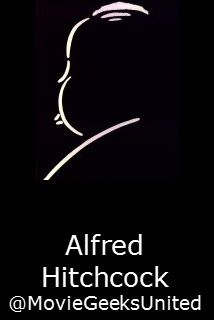Vertigo: The End of Eden (1958)


Content by Tony Macklin. Originally published on February 1, 1980 @ .
Vertigo is one of the most pessimistic popular films ever made. It is ironic that Alfred Hitchcock usually is not appreciated for the thematic values in his films. Hitchcock, who is interested in and marvelous at creating effects, is often dismissed as being a simple entertainer. He is labeled as the master of suspense, and he is that. But he is much morel he is the master of theme. So often we get caught up in his effects, and see them as an end in themselves. We don't realize that the effects are a means to Hitchcock's vision of mankind, our dreams and our fates. Hitchcock is not only a stylist; he is a creator with soul. Beneath an irony that mocks his characters, there is a sense of life that transcends effect. Vertigo is a prime example of how meaningful a Hitchcock film can be, if we allow ourselves to understand it. Vertigo is an emotional experience, and an enlightening one about Hitchcock's sense of the human condition. It is an artistic view of life.
Why are many viewers thwarted by Vertigo? It is more than clues and evidence. And until one cuts beneath the narrative, he can't perceive the themes and feel the emotion. It is demeaning to go to Vertigo and see it as a series of plot twists that add up or don't quite add up on the scale of logic.
A major misleading factor is gold ole Jimmy Stewart, who is hardly typecast as a man of passion. Jimmy Stewart usually is sentimental, but his character Scottie Ferguson is not just sentimental. His dream is not the conventional American Dream. It is erotic and mysterious. Scottie Ferguson is a wanderer trying to become an artist. His is a dream beyond reality; it is a quest after the Ideal, the Grail, perfection.
Maybe that's why a good many viewers don't relate to Scottie Ferguson; his dreams is not theirs. Since they don't dream his dream, they don't understand its loss. So the ending is devastating to Scottie, doesn't devastate them It is merely surprise. They haven't invested themselves in a quest such as Scottie's.
Another misleading factor is Kim Novak. She is like wood or glass. But as wood or glass can come alive if you let the light play in them, she too can come alive. She can be as matter-of-fact or as mysterious as history. She is as absurd or as spiritual as an icon.
Since in all his films, Hitchcock is concerned with how blind we can be, how appearances deceive, Scottie and Madeleine, Stewart and Novak, can be seen as the materialization of this.
Scottie's quest after the Ideal is not universal. We may want the Ideal, but we settle. Scottie doesn't settle. He can't resign himself to sensible, dependable Midge who mothers him, who is normal. He wants a vision, not a mother. Scottie, who has seen death, desires wonder.
Vertigo is about the fall of man. From its first sequence to its last, fallen man is its theme. Scottie is post-lapsarian man. He participates in the fall of man; the policeman at the beginning hurtles past him to his death, leaving Scottie psychologically and morally wounded. He is conscience-striken. From this point, Scottie has surely lost his innocence. He is lost in a moral malaise, without purpose, a victim of Vertigo, both psychological and spiritual. He is left waiting for something in which to believe, something to which to make a commitment. He has quit the police force, refusing to be "chair-borne," which his friend Midge tells him is "where you belong." He is in limbo.
What brings him out of limbo is "a mission number,", a call from an old school acquaintance who wants Scottie to help him. In one way it would be better for Scottie to settle for living out his life in a chair behind a desk. But for Scottie this is not enough. He perfunctorily goes to see Gavin Elster, and though he is initially very reluctant to get involved, he goes to Ernie's restaurant that night to watch Elster and his "wife," who are going to the opera. From then on Scottie is trapped on a path to futility, a vain quest for immortality.
At Gavin's behest -- Gavin thinks his wife may be possessed by her great-great grandmother Carlotta's spirit -- Scottie begins to follow Elster's "wife," Madeleine. He follows her to a cemetery where Carlotta Valdez is buried, to a flower shop where she buys a replica of the corsage that Carlotta holds in a portrait that he sees when he follows Madeleine to an art gallery and watches as she sits on a bench before it.
He remains perplexed. After dropping petals into San Francisco Bay, she jumps into the water and floats with her arms down and outstretched. It is at this moment that Scottie is caught; he follows her into the water, and Adam accompanying his Eve. He "saves" her, takes her to his apartment, puts her to bed, and waits for her to awake.
She feigns ignorance about what happened, and bolts out when Scottie goes into another room to answer a phone call from Gavin. The next day, he follows her, and it is a maze-like journey. It is one of the major symbols in a very symbolic film. He is now in a labyrinth from which there is no escape. The maze is literal. But much more than that, it is psychological and spiritual. As he drives after Madeleine, Scottie remains perplexed about where she is going. She keeps driving downhill, making turn after turn. Finally she arrives at his door; it has been an ironic trek back to his starting point. He greets her, and she says she is there to drop off a card of thank you and apology.
They go "wandering" together to a forest with sequoia trees, "the oldest living thing." Madeleine emphasizes her fear of them, since they will outlive her; she shows Scottie, on a tree in an exhibit, where she was born and where she died in a previous life. They leave this mysterious, ironic Eden, and go to the coast where they kiss, as the surf strikes the shore and spumes into the air. Scottie has now found his dream, his purpose, his strength. But he is still dismayed that he can't find the key to her ordeal.
The tower is the key to her ordeal -- and his. It is a major symbol of ascendency, of spiritual growth. It was a tower that brought Madeleine to Scottie. She finds his apartment because she "remembered a landmark. Coit Tower. It led me straight to you."
It is the tower at San Luis Baptista in which Scottie falls in his pursuit up the stairs after Madeleine. and Madeleine, whom Scottie pursues throughout the film with such commitment, means "tower of strength." When Scott gets his "second chance" he climbs the tower, overcomes his acrophobia, and says, "I made it." But at the top of the tower is the place of his downfall, because after seemingly overcoming his failings, fate intervenes and sends Judy and his dream crashing to their destruction.
Another symbol of the quest is the color green. Hitchcock told Francois Traffaut that in the scene in which Scottie sees Madeleine in the cemetery he used a fog filter "that gave us a green effect." And when Judy comes out of the bathroom, the green neon light of the hotel casts a light that "gives her the same ghost-like quality" as in the cemetery scene. When Scottie first sees Madeleine in Ernie's she is garbed in green, and when he first visits Judy in her hotel room she is wearing a green dress. When Scottie follows Madeleine to the florist and views her through the ajar door there are green boxes. And Scottie follows her green car. The green, like the light at the end of Daisy's dock in Fitzgerald's The Great Gatsby, is a symbol for hope, the object of the protagonist's quest.
Another major color is red. The flowers, the painting, the robe Scottie gives to Madeleine to wear have red. And of course the fire she sits by in the robe is aflame. The door of Scottie's apartment is bright red. Red is a sign of Scottie's passion, which Madeleine brings to life.
At night Scottie is awakened by Madeleine's appearance at his door; she has had a nightmare, but Scottie is able to figure out that the setting of her dream is a real place, the mission at San Juan Baptista. He is excited. "Don't you see, you've given me something to work on now." He wants to take her to the mission. "When you see it it will finish your dream. It will destroy it." Little does Scottie know how ominous and ironic these words will prove to be for him.
The next day they drive to the mission through a passageway of trees. At the mission Scottie begins to make sense of things. He shows her a wooden horse that he says was the horse in her dream. "You see, there's an answer for everything." "I love you," she says to him for the first time. But then she says, "It's too late." These fateful words Scottie also says in his last speech to Judy. For both Madeleine and Scottie it is destined to be "too late."
Madeleine runs away but Scottie catches up and holds her. "It wasn't supposed to happen this way," she says. She wasn't supposed to fall in love with him. "You believe I love you," she tells him. "Even if you lose me. You'll know I loved you and wanted to go on loving you." The ironic thing is that though she says she loves him she still betrays him. She still goes through with the plot from going to his door at night to deceiving him. "Let me go into the church, alone," she says. She goes; then seeing the tower, he follows. Inside, he hears her running up the steps and tries to follow. Caught partway up the flight of stairs by Vertigo, he is helpless as through the portal he sees the body -- actually Elster's real wife -- hurtle through space. Again, this time more painfully, he is a victim of the fall.
Scottie has put his faith in the ability to figure things out, but it has failed him. Knowledge has destroyed innocence, but the knowledge is an illusion.
And the church is no help. As Scottie flees, from above we see a priest climbing up a ladder to the roof where the body lies. He is ineffectual; he is too late. At the end of the film, when the nun emerges out of the darkness saying, "I thought I heard voices," her image terrorizes Judy who recoils and falls to her death from the church tower. The church doesn't give balm; it gives fear and guilt.
At the hearing after Madeleine's death, the clergy sits passively behind Elster. In the hearing which is like an inquisition, the judge blames Scottie, although he admits the law can't do anything; it is on the man's conscience. As in Vertigo and Frenzy, the protagonist's reputation is publicly scorned. And Scottie is responsible; his ego in believing he could fix things led to the lass of Madeleine.
Scottie undergoes a lengthy hospitalization, and the break-up with Midge who is unable to help him with her motherly, protective, practical ways. She even tries the music of Mozart, but even art can't help him now. He is forever committed to Madeleine, the ideal. He has surrendered himself to her, and her fall was his.





















